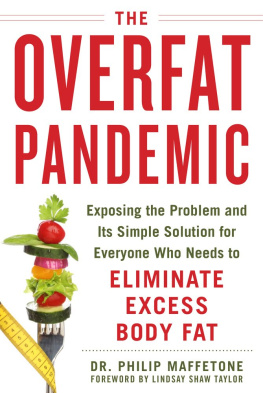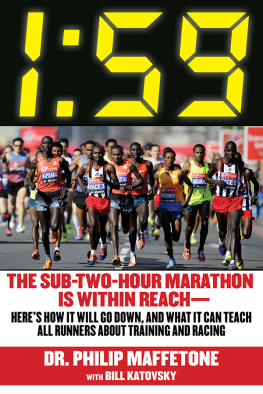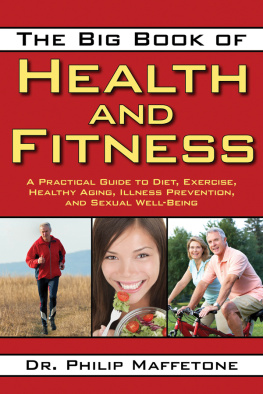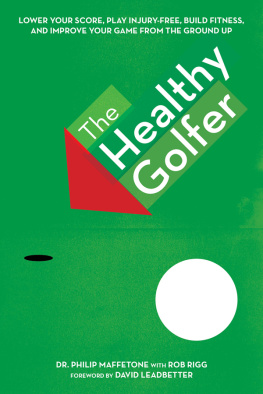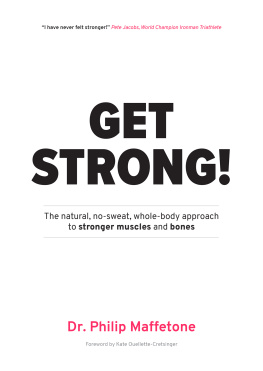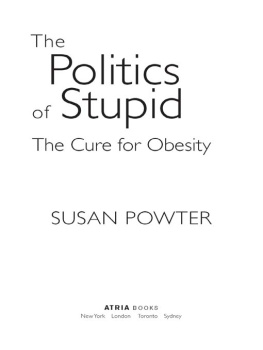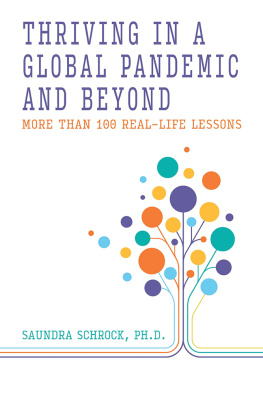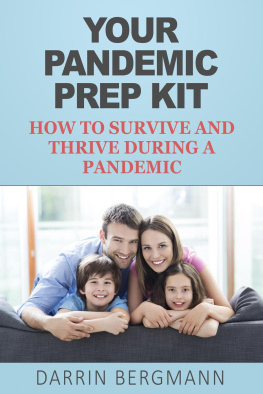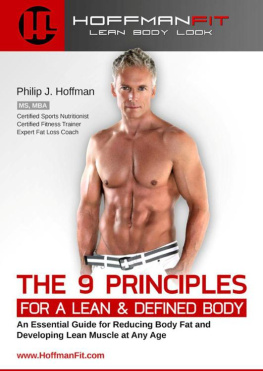Disclaimer: This book should only be used as a reference and only used in the context of standard medical care with your physician.
Copyright 2017 by Philip Maffetone
All rights reserved. No part of this book may be reproduced in any manner without the express written consent of the publisher, except in the case of brief excerpts in critical reviews or articles. All inquiries should be addressed to Skyhorse Publishing, 307 West 36th Street, 11th Floor, New York, NY 10018.
Skyhorse Publishing books may be purchased in bulk at special discounts for sales promotion, corporate gifts, fund-raising, or educational purposes. Special editions can also be created to specifications. For details, contact the Special Sales Department, Skyhorse Publishing, 307 West 36th Street, 11th Floor, New York, NY 10018 or .
Skyhorse and Skyhorse Publishing are registered trademarks of Skyhorse Publishing, Inc., a Delaware corporation.
Visit our website at www.skyhorsepublishing.com.
10 9 8 7 6 5 4 3 2 1
Library of Congress Cataloging-in-Publication Data is available on file.
Cover design by Tom Lau
Cover photo credit iStock
Print ISBN: 978-1-5107-2954-4
Ebook ISBN: 978-1-5107-2955-1
Printed in the United States of America
To all those committed to escaping the overfat pandemic.
And to the junk food industryplease help us release the world from the entangled trap of sugar addiction.
CONTENTS
FOREWORD
A s a psychologist turned health and fitness writer, I care deeply about helping people find a path to physical and mental wellness that is rooted in good science. Dr. Maffetone has been a trailblazer in the health and fitness world for decades. He has strongly influenced me professionally in my work with Primal Blueprint and personally with how my family and I eat and exercise. This book is his latest contribution to his revolutionary approach.
On the face of it, one might reasonably ask why we need another book on the topics of weight and weight loss (or fat and fat loss), diet, and exercise. The answer is because it is clear that many people still do not understand how to eat and move in ways that actually promote health, or they do not feel empowered to do so. As Dr. Maffetone correctly points out, the current system is flawed at every level, from industries that profit from people staying fat, to weight-loss approaches that we know dont work, to medical and governmental organizations promoting unhealthy food choices, to conflicting information about how to eat and exercise, to societal pressure to behave in ways that compromise health.
As a society, we are nowhere near a solution. In fact, as Dr. Maffetone argues, the problem hasnt even been properly defined ; we are trying to fix the problem of weight instead of the problem of fat . Psychologists have long understood that what we call something matters. Language directs attention. When researchers are tasked with addressing weight problems, they will design interventions designed to move the number on the scale. Doctors become concerned, first and foremost, with how much their patients weigh. Individuals focus on this one single metric above all else. We all unintentionally lose sight of the real problem, so our remedies miss the mark.
Changing the focus from weight to fat is important, but of course it is not a panacea. Health professionals are still faced with the task of reversing the current pandemic not just by preventing more people from becoming overfat, but also by helping those who are already overfat change course. It is a task the community as a whole is clearly not equipped to handle at the moment. Unsurprisingly then, a lot of the blame is shifted to overfat individuals: Why dont people just eat better and exercise more? Dont they want to be thin and healthy?
Clearly those are the wrong questions to be asking. The overfat pandemic rages on not because of lack of motivation or lack of trying on the part of overfat individuals. Abundant evidence shows that most people want to be healthy, as well as to conform to societal standards of acceptable, attractive bodies. Overfat individuals encounter tremendous stigma, from workplace and education discrimination, to prejudice in everyday social interactions. In a survey of over four thousand individuals, more than a third of those who were overweight (ranging from overweight to very obese) reported that they would sacrifice one year of life to not be obese; one in ten would sacrifice ten years. (It is worth noting that 33 percent of underweight respondents and 18 percent of normal-weight respondents would sacrifice ten years of life in order to avoid being obese.)
We know that most people who are overfat have tried many, many times to diet through calorie restriction, eating low-fat, low-calorie processed foods, and through extreme measures such as weight-loss pills, starving themselves, and purging. We also know this doesnt work. Their failure to lose weight is seen as personal failure, instead of a failure on the part of institutions and medical professionals to provide the right guidance. That is why books like this are so important.
The diet, fitness, medical, and pharmaceutical industries want people to believe that health is hard so we need their expert help, which undermines peoples sense of agency with regard to their own well-being. The path forward involves empowering individuals to take control of their own health. This must include continuing to highlight the very real barriers to enacting these changes, including the addictive nature of sugar and grains, and the reality that the ability to make healthy food and lifestyle choices is constrained by economic inequality. It is important to keep reiterating that the industrialized food industry does not have our best interests at heart; it benefits from keeping us hooked and hungry, not nourished and satiated.
It also means challenging the tremendous dogmas around whole grains, fear of dietary fat, and a no-pain, no-gain mentality. The amount of bad information out there is disheartening to say the least, and much of it comes from people in positions of authoritydoctors, government officials, and fitness professionals. By necessity, Dr. Maffetone and others in this sphere ask folks to reject conventional wisdom and do the opposite of what they have always heard is best for them. As we know well at Primal Blueprint, that can be a big hurdle. Going against the norm means making oneself different , which can be deeply uncomfortable, as well as logistically challenging in many ways. In the case of lower-carbohydrate, higher-fat eating, it means doing things that we have been told are bad for our health, like eating saturated fats. It also means not doing things we have been told are good for us, like eating heart-healthy whole grains and engaging in hardcore, sustained cardio workouts. This can provoke anxiety, fear, and uncertainty.
The way to overcome this so we as consumers feel emboldened to take our health into our own hands, and especially to reject what the masses are doing in favor of something that could actually work, is through education. It sounds trite, but knowledge is power; when the experts fail us, it is up to us to learn as much as we can and find a better way. We have control over many of the variables that affect our overall well-being, but messages like the one Dr. Maffetone offerschoose nourishing foods instead of junk, figure out what works best for you, and exercise in a way that fosters health instead of undermining itcan be drowned out by the noise of the same-old-same-old bad advice. Unless people who believe in his message keep repeating it over and over, loudly and with conviction, we will lose the message altogether.

